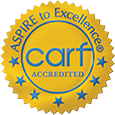For those persons who live with an addicted person & want a professional expertise support ambiance, are in the early stages of an addiction, who are fearful of eventually giving in to an addiction, or who have just left an inpatient rehabilitation program & want additional support as they get back into “normalcy,” an inpatient alcohol and drug treatment center (e.g., Pax House drug rehab in Pasadena) may be the best thing that can happen to them.
One of the issues that often comes up, though, is that outpatient drug treatment facilities are not all the same. Although most (if not all) of them will do what they can for their clients and are most probably run by highly caring and competent professionals, some substance abuse treatment centers just happen to be better—better run, better equipped, more experienced and with a better-established track record (when compared to, say, new facilities or facilities that simply don’t have much volume to speak of).
As a matter of fact, there are a number of key factors, benefits, and characteristics that you should expect or keep an eye out for as you shop around for the ideal outpatient rehabilitation treatment center.
How the Best Inpatient Centers Stand Out
They simply won’t accept, if it’s not in the client’s best interest, someone that would be better served at an inpatient treatment center; one such person would be someone that requires 24/7 support due to a potentially-life-threatening, severe addiction.
They offer a fairly-inclusive, well-diversified and wide collection of services, including:
- Both alcohol & drug addiction counseling
- Individual and group therapy sessions
- Both women’s & men’s services
- 12-step comprehensive programs
- Spirituality counseling referrals & accessibility
- Relapse preventive strategies
- Life skills & re-socializing skills development
- Pharmacological options (when appropriate & not likely to lead to additional problems)
- A whole repertoire of mental health solutions
- DWI/DUI programs
- House referrals & sober-living facilities
The allow clients to continue to attend school, work & perform other normal, regular-life-style functions
They offer assistance & encouragement in maintaining and, more importantly, developing strong “support” systems; one of the ways this is done is by making available to family and friends of the addicted practical educational programs and literature
They provide information about & help clients derive benefits from the Family Leave Act of 1993 (FMLA)–provided that they qualify–in order to take time off from work so they can seek treatment, without the fear of losing their jobs.
They are familiar with & can help clients tap into Employee Assistance Programs (EAPs) that many top employers have put in place in order to encourage workers to voluntarily seek treatment.
They provide information about the Americans with Disabilities Act (ADA), which can help mostly alcohol addicted persons since such addictions can be classified as both a disability & a “serious health condition”; unfortunately, drug-addicted persons have yet to officially receive such a privilege, in general.
They offer fee schedules that are much more affordable than those of inpatient treatment facilities/programs.
They boast of having well-orchestrated and well-diversified drug & alcohol treatment services that seek to address all the triggering mechanisms, “making-things-worse” catalysts, and other aspects of addictions, including physiological, nutritional, medical, work-related and environmental variables.
They strive to not confirm or follow “one-size-fits-all” approaches or paradigms. Although some professionals in the industry have non-compromising ideas as to what a good inpatient drug & alcohol treatment program should include and provide, the stark reality is that there are many factors and variables which can make individual cases too unique and special to attempt to solve merely with “out of the box,” “no need to do anything different” approaches.
For instance, they are most probably aware of the fact that the décor and furniture chosen for these facilities matters. A “home-like” facility, for example, might be more helpful to some clients than one that is too clinical, cold and seemingly impersonal. The point is that the success of any program depends on more than just staff competence, client commitment, and the facility’s resources.
They exist to cater to the unique & special needs of the clients; admittedly, though, this can change over time. Nevertheless, a good center isn’t focused on impressing the government (in order to qualify for grants), meeting quotas set by Boards or keeping their staff happy. None of those things matter if the clients aren’t being served conscientiously, effectively and caringly.
Get Help at Our Pasadena Drug Rehab Center
There is no question that you can defeat your addiction—yes, any kind of alcohol or drug dependency addiction—but, make no mistake, it will require a genuine desire to again become “clean” and regain self-control and self-determination, lots of hard work, unfaltering commitment, and if you work for a living, support from your employer (through formal employee drug abuse programs).
Even with all those resources, help and guidance, though, few people can overcome a substance abuse problem without the competent and caring assistance of mental health professionals trained in this special area of psychology.
With the help of the fine, personally-committed and highly trained professionals at Pax House drug rehab in Pasadena, there is no question that you can not only beat your addiction but go on to list having done so as one of your greatest achievements!


